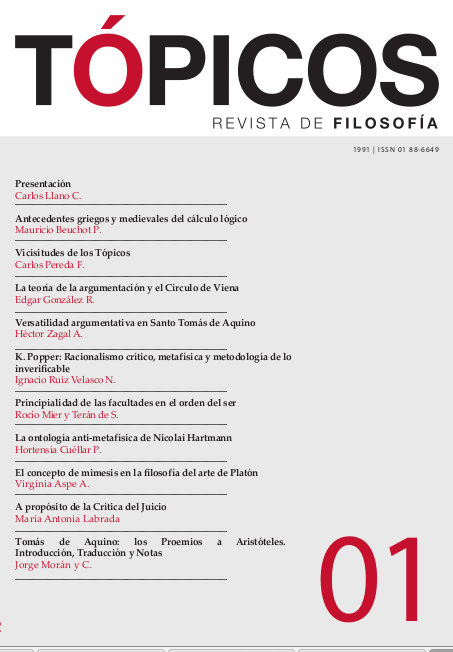Publicado 2013-11-28
Palabras clave
- Karl Popper,
- metafísica,
- metodología,
- Kant,
- teorías
- realismo,
- racionalismo. ...Más
Cómo citar
Resumen
Este artículo ofrece una revisión de una serie de nociones fundamentales en la filosofía de Karl Popper que permiten la comprensión del quid y el status de la metafísica ante las críticas del Círculo de Viena en una época post-kantiana. Se trazan las preocupaciones elementales en la filosofía de la ciencia de Popper resaltando la importante influencia kantiana, la reformulación de la crítica como proceso racional de prueba y error, la reivindicación de las teorías como interpretaciones de los hechos, la modificación de la metodología tradicional, las dimensiones de compatibilidad y validez en los conocimientos científicos empíricos y especulativos, entre otros. Al mismo tiempo, se señalan una serie de errores plenamente filosóficos, en lo particular, en lo concerniente a la incongruencia del vago y desembarazado uso del lenguaje de Popper, anteriormente severo en esta temática. El artículo concluye con un análisis de la metafísica popperiana entendida como saber racional no-verificable, no-refutable, argumentable y perteneciente a la esfera científica, aunque de una manera especial y subordinada: como metodología de lo inverificable.






